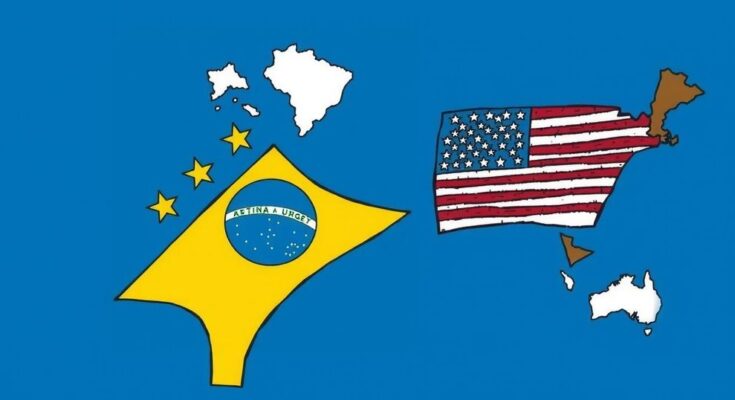Uruguay exemplifies a model of civil and transparent governance, contrasting starkly with the polarizing politics of Brazil and the USA. With a history of alternating center-right and center-left leadership, it promotes social welfare while supporting private sector growth. The progressive social policies and the recent elections highlight Uruguay’s potential as a guiding light for overcoming violent extremism and divisiveness in politics.
Uruguay offers a model for democracies like Brazil and the USA by showcasing a civil and transparent electoral process. Unlike the highly polarized and contentious political landscapes found in larger nations, Uruguayan campaigns are characterized by moderation and civility, where both winners and losers exemplify pragmatic governance. The rich history of alternating power between center-right and center-left parties has cultivated a political culture that prioritizes social welfare while fostering a favorable environment for private sector growth.
The newly elected President, Orsi, emphasizes continuity in governance without backlash towards previous administrations. He plans to forge international ties with fellow leftist governments while maintaining a balanced domestic focus on welfare. This is reminiscent of ex-President José Mujica’s austere and humble leadership style, which prioritized public service over luxury.
Economically, despite its small size, Uruguay maintains low poverty rates and inequality. It is an attractive destination for investment and trade, evidenced by the presence of Indian IT firms and substantial exports despite its diminutive market size. Its progressive social policies, including the legalization of same-sex marriage, marijuana usage, and abortion, position Uruguay as a leader in human rights within Latin America.
Ultimately, the successful political framework and social cohesion in Uruguay provide substantial insights for the U.S. and Brazil, reinforcing the notion that extremism and divisiveness in politics are not inevitable. Uruguay demonstrates that unity, pragmatism, and a focus on societal welfare can effectively counter the trend of violent extremism that has plagued larger democracies.
Uruguay’s political history is characterized by a transition from military dictatorship to a stable democratic republic since 1985. This growth has produced a political environment that underscores pragmatic governance and respect for electoral processes, contrasting sharply with the volatile political climates of larger nations like Brazil and the USA. The ability of the Uruguayan electoral system to operate with transparency and civility is noteworthy, especially as it has avoided the polarizing rhetoric and disinformation prevalent in other democracies. Furthermore, Uruguay’s social and economic strategies solidify its position as a progressive leader in Latin America.
In conclusion, Uruguay stands as a testament to the effectiveness of a moderate and respectful political approach that prioritizes social welfare, transparency, and inclusivity in democracy. The lessons drawn from its political practices could greatly benefit larger nations currently grappling with divisive politics. By illustrating that civil discourse and a commitment to social responsibility can prevail, Uruguay provides a model worthy of emulation for democratic systems at risk of extremism.
Original Source: www.theweek.in




